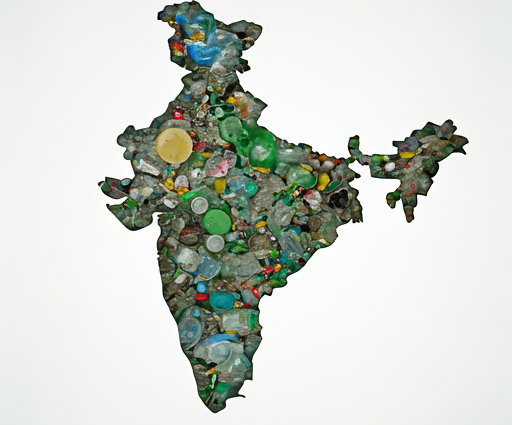A recent study has revealed India as the world’s largest plastic polluter, contributing 9.3 million tonnes of plastic waste annually. This amounts to roughly one-fifth of the global plastic emissions. While India’s official waste generation rate is estimated at 0.12 kilograms per capita per day, the actual figure is likely higher due to under-reporting and improper management in rural areas.

The study, identified Nigeria and Indonesia as the second and third largest plastic polluters, respectively. China, which was previously considered the top polluter, has now dropped to the fourth position.
The researchers found that global plastic waste emissions were at 52.1 million tonnes per year in 2020. While littering was the primary source of emissions in developed countries, uncollected waste dominated in developing nations. They also found that 20 countries, mostly low-income, produce 69% of global plastic waste. High-income countries generate more waste but have better management.

The findings of this study could be crucial in informing the Global Plastics Treaty, which aims to reduce plastic pollution and its associated greenhouse gas emissions. As countries work towards developing a legally binding agreement, the data provided by this study can help guide effective policies and strategies to address the global plastic crisis.
Reference- Journal Nature, Down To Earth, Global Plastic Treaty website, National Geographic, The Guardian





